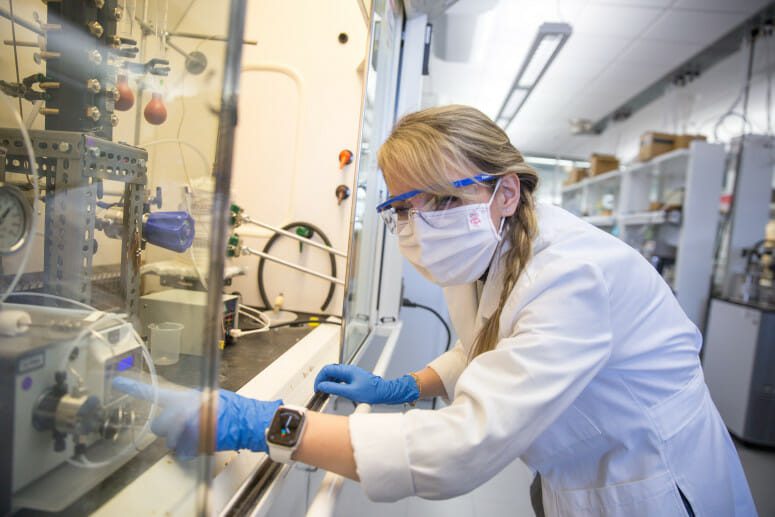17 Mar DOE renews funding for Great Lakes Bioenergy Research Center; UW–Madison hub to receive $27.5 million for 2023

Canan Sener, scientist in the Great Lakes Bioenergy Research Center, prepares an experiment in her lab. Sener’s research focuses on turning plant material into valuable products. GREAT LAKES BIOENERGY RESEARCH CENTER
The U.S. Department of Energy has awarded a University of Wisconsin–Madison based research center another five years of funding to develop sustainable alternatives to gasoline, diesel and other hydrocarbon fuels as well as products currently made from petroleum.
The extension will allow scientists at the Great Lakes Bioenergy Research Center (GLBRC) to continue foundational research to enable the breakthroughs needed for the cost-effective conversion of non-food plants into low-carbon replacements for jet fuel, diesel and other fossil fuels. Those biofuels are a key component of plans to decarbonize the transportation sector and advance a sustainable, safe and secure bioeconomy.
GLBRC researchers are also working to increase plant productivity and develop cost-effective processes to convert as much of the plant material as possible into chemicals used to make products like polyester, nylon, lubricants and plastics.
“To meet our future energy needs, we will need versatile renewables like bioenergy as a low-carbon fuel for some parts of our transportation sector,” says U.S. Secretary of Energy Jennifer M. Granholm. “Continuing to fund the important scientific work conducted at our Bioenergy Research Centers is critical to ensuring these sustainable resources can be an efficient and affordable part of our clean energy future.”



